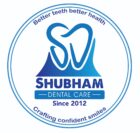Academic dentistry and research
As a clinical academic you not only get to practice dentistry, but you are also involved in its relationship with other disciplines which may be non-dental. A dental clinical academic combines their clinical work with research, which has the potential to change future working practices. This research may be on a range of subjects that include biomaterials, clinical procedures or public health initiatives.
Communication skills are an important part of the role. A clinical academic will publish their research findings in high impact journals and develop a national and international reputation in their chosen field. You would present your work at conferences to your peers. You may well introduce your research into your own clinical practice and become an advocate for new ideas.
Teaching both undergraduate and postgraduate students is an important part of this role. To many this is very rewarding, as you oversee the development of future colleagues. Senior posts in academic dentistry will require organisational and leadership skills. If you aspire to the higher clinical academic posts, you must therefore acquire skills in three areas: research, teaching and clinical practice.
Clinical academics may be employed either full-time or part-time. The workload is often split between NHS secondary care practice, research, and undergraduate teaching. However, there is variation in academic contracts, which may be either predominantly teaching or research focussed. At the same time there will be clinical practice.
Undergraduate teaching will be done mainly in teaching hospitals that are attached to a university. Postgraduate teaching may involve the training of junior staff, the supervision of research projects for a higher degree by thesis such as a master’s or doctorate, or by participation in formal postgraduate courses and refresher courses.
There are also a small number of academic staff who are full-time research workers in the field of basic dental science.
